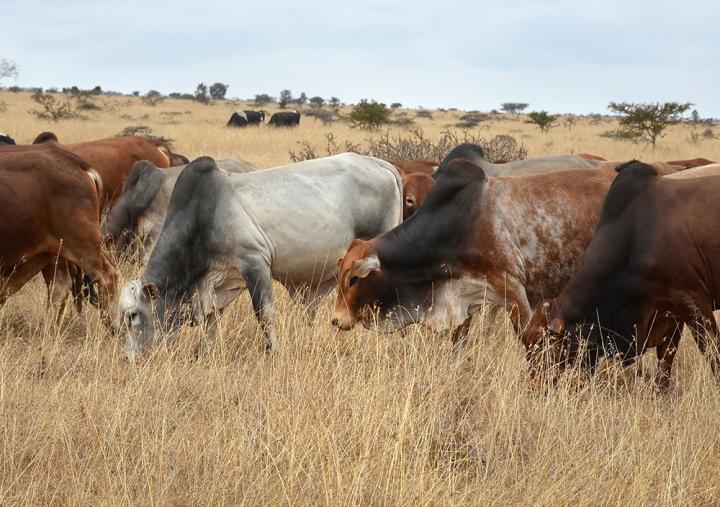Plaudits for antibiotic resistance tracking system
Approach to tracking drug resistance in people and livestock gets international recognition.

A surveillance approach for antimicrobial resistance among people and their livestock, co-developed and piloted by Roslin Institute scientists, has been hailed as a success story following an international meeting.
The multi-disciplinary method is designed to highlight links between infections, and resistance to antibiotic treatment, in people and animals in communities in low- and middle-income countries, which are disproportionally affected by antimicrobial resistance (AMR).
The approach could give valuable insight into how infection spreads between people and livestock in a community environment, and the timescales involved.
Researchers developed their method based on the principles of One Health, which takes into account the collective health of people, animals and the environment.
The team’s efforts have been recognised following their presentation to the Call to Action in AMR virtual conference, organised by the International Centre for AMR Solutions (ICARS).
Pilot study
Experts from government, hospitals and universities, led by the Roslin Institute, took part in establishing a pilot research project in Uganda.
The team of specialists in diagnostics, antibacterial stewardship and disease surveillance worked together to create a blueprint for a One Health AMR surveillance programme.
They sought to better understand the impact of antibiotic use in hospital and community settings on the incidence of antimicrobial resistance.
They studied cases of infection and resistance to treatment in hospital patients, and traced whether animals kept by the patient were affected. They also inspected animals in communities for disease and resistance, and checked for corresponding incidences in their owners.
National action plans
Their five-month project directly supports the implementation and evaluation of national action plans for control of antimicrobial resistance.
The large amounts of data produced in the pilot study should enable the team to establish any links between antimicrobial resistance in people and in animals.
Their scheme, supported by the Fleming Fund Fellowship, is being expanded to One Health scientists from Uganda and Malawi and policy professionals from Kenya, to continue the work into next year.
By working as a cohort at country and regional level, this group will be equipped to support the delivery of national action plans.
People in developing regions are disproportionately affected by antimicrobial resistance, owing to their proximity to livestock and widespread use of low-cost antibiotics. Protecting regions where it is most needed is key to managing the problem globally. We hope our One Health approach will be the key to understanding how resistance can be controlled with robust diagnosis, surveillance and stewardship of treatments.
** The Roslin Institute receives strategic investment funding from the Biotechnology and Biological Sciences Research Council and it is part of the University of Edinburgh’s Royal (Dick) School of Veterinary Studies. **
Related links
Call to Action in AMR conference report


